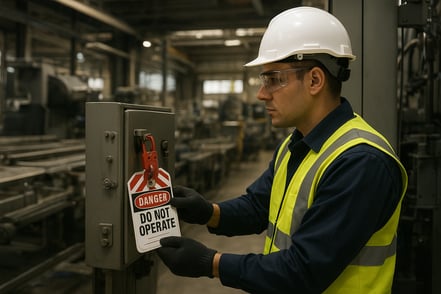Education’s dirty little secret? Most people who ace the test still can’t do the job.
It’s not a failure of effort, it’s a failure of method. Passive learning may check a compliance box, but it doesn’t build the kind of real-world confidence today’s learners need. That’s why smart educators and training leaders are shifting to a better approach: immersive learning powered by VR training.
And here’s the kicker: It’s no longer expensive or complicated. With platforms like Facilitate, you don’t need a dev team or a Hollywood budget. You just need a problem to solve and a desire to actually prepare your learners for the real thing.
Confidence > Test Scores
Let’s get one thing straight: Retention without application is useless. If your learners can recite the steps of a safety protocol but panic in a real emergency, the training failed. Period.
What immersive learning does better than any classroom or PDF is build confidence through experiential practice. It lets learners do the thing—not just read about it. The result? They stop feeling like imposters and start acting like professionals.
That’s not theory, it’s backed by research. According to PwC, VR-trained learners are:
- 275% more confident in applying what they’ve learned,
- 4x faster to complete training,
- And 3.75x more emotionally connected to the material.
Why? Because they’re doing, not just digesting.
Practice Builds Muscle Memory, Not Memorization
In fields like vocational education, healthcare, and STEM, learners need more than knowledge—they need decision-making muscle memory. You don’t get that by watching videos or sitting through lectures. You get it by screwing up safely, reflecting, and trying again.
We call this safe failure. And it's the secret sauce of virtual reality classrooms.
Let’s say you're training someone to perform an electrical lockout/tagout (LOTO). In a VR scenario, they can mess it up without blowing a fuse or losing a hand. Then they fix it. Then they do it again. That repetition under pressure is what builds the confidence to act decisively in the real world.
Facilitate enables this through our no-code VR training platform. Educators can rapidly create interactive simulations, without writing a line of code. Want to show a hazard? Walk learners through a procedure? Embed assessments? Done in minutes.
Confidence Is the Ultimate Learning Outcome
We’ve all seen it: learners who pass the test but freeze in the field. It’s not just a performance issue, it’s a confidence gap.
And that’s why job readiness is becoming the true north for forward-thinking institutions. Not “did they learn the material?” but “can they do the job?”
That’s exactly what Coleg y Cymoedd achieved using Facilitate across four campuses in Wales. By giving staff the tools to create custom immersive scenarios, they slashed training costs by 40% and saw a massive spike in learner engagement. Most importantly, 83% of students reported feeling more confident applying skills after VR-based training.
We’re not surprised. We see this across every successful deployment—from utilities and manufacturing to higher ed and apprenticeships. Once learners get their hands into the virtual environment, something clicks. They go from “I understand” to “I can.”
No Code, No Excuse
Still think immersive learning is out of reach? Not anymore.
Facilitate’s no-code editor makes it possible for any educator, technical or not, to design and deploy powerful, scenario-based training. Combine 360° video, 3D models, audio cues, branching logic, assessments, and more—all in one seamless workflow.
Even better? You can integrate it with your LMS. We support xAPI and SCORM out of the box. So your data doesn’t live in a silo; it drives insights, improvement, and evidence of ROI.
Ready to dip your toe in the immersive pool? We offer a 7-day free trial so you can try it risk-free.
Learning Without Confidence is Just Trivia
The next generation of learners isn’t looking for lectures. They’re looking for tools that help them feel capable, competent, and ready.
Immersive learning isn’t a gimmick. It’s the only format that matches the demands of a world where adaptability, speed, and hands-on skill matter more than textbook memory.
Don’t train for test scores. Train for confidence.





Comments